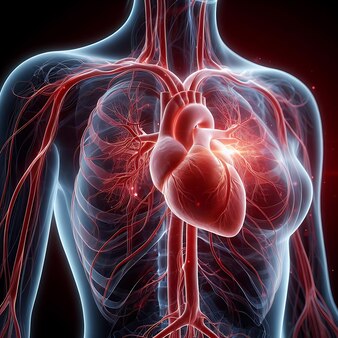Cardiomyopathy

Understanding Cardiomyopathy:
Cardiomyopathy is a group of diseases that affect the heart muscle, causing it to become enlarged, thickened, stiff, or weakened. These structural changes impair the heart’s ability to pump blood effectively, leading to symptoms such as shortness of breath, fatigue, swelling of the legs, and an increased risk of arrhythmias, heart failure, and sudden cardiac death. Cardiomyopathy can be inherited or acquired and may be categorized into several types, including dilated cardiomyopathy, hypertrophic cardiomyopathy, restrictive cardiomyopathy, and arrhythmogenic right ventricular cardiomyopathy.
Diagnosis: Diagnosing cardiomyopathy typically involves a combination of medical history review, physical examination, and diagnostic tests such as echocardiography, electrocardiography (ECG), cardiac MRI, or cardiac catheterization. These tests help evaluate the structure and function of the heart, assess the severity of myocardial dysfunction, and identify underlying causes or contributing factors such as genetic mutations, viral infections, or exposure to toxins.
Advanced Treatment Options: At our facility, we offer a range of advanced treatment options for cardiomyopathy, tailored to each patient’s specific subtype and individual needs:
Medication Management: Medications such as beta-blockers, ACE inhibitors, angiotensin receptor blockers (ARBs), diuretics, and anticoagulants may be prescribed to manage symptoms, improve heart function, and reduce the risk of complications such as heart failure or arrhythmias. Our experienced cardiologists carefully select and adjust medication regimens to achieve optimal therapeutic outcomes and minimize side effects.
Implantable Devices: For patients with advanced or high-risk cardiomyopathy, implantable devices such as implantable cardioverter-defibrillators (ICDs) or cardiac resynchronization therapy (CRT) devices may be recommended. These devices continuously monitor the heart’s rhythm and deliver electrical impulses or shocks to regulate abnormal heartbeats, prevent sudden cardiac death, and improve heart function.
Heart Transplantation: In severe cases of cardiomyopathy refractory to medical therapy or device implantation, heart transplantation may be considered as a life-saving treatment option. Our multidisciplinary team of cardiac surgeons, transplant coordinators, and transplant specialists provides comprehensive evaluation, preoperative optimization, and postoperative care for eligible candidates undergoing heart transplantation.
Lifestyle Modifications: In conjunction with medical and surgical interventions, lifestyle modifications play a crucial role in managing cardiomyopathy and optimizing heart health. Our team provides personalized guidance on dietary changes, exercise programs, smoking cessation, and stress management to promote cardiovascular wellness and improve quality of life.
